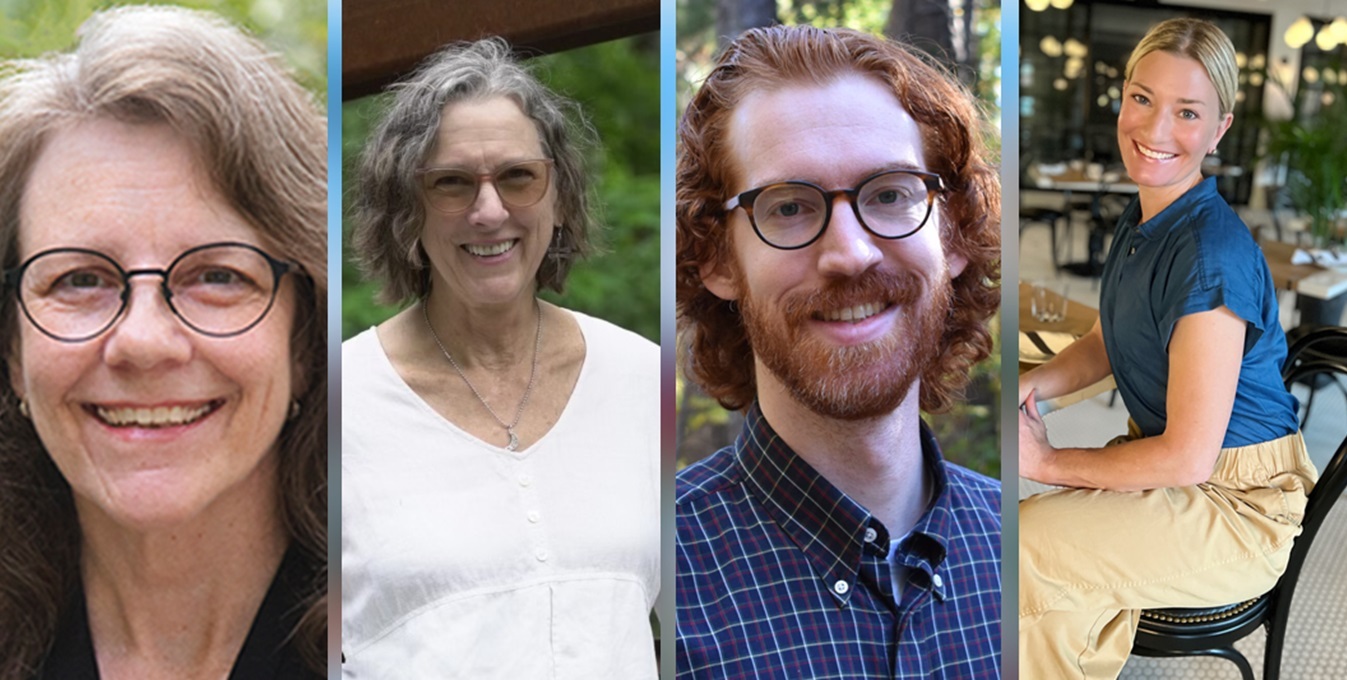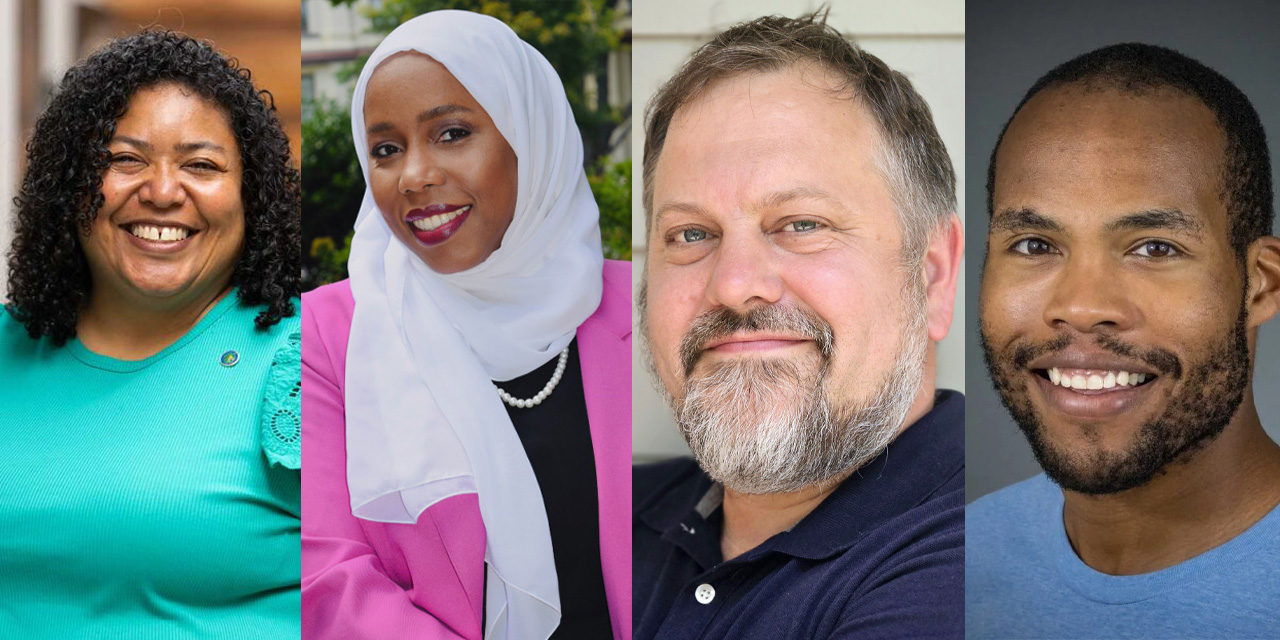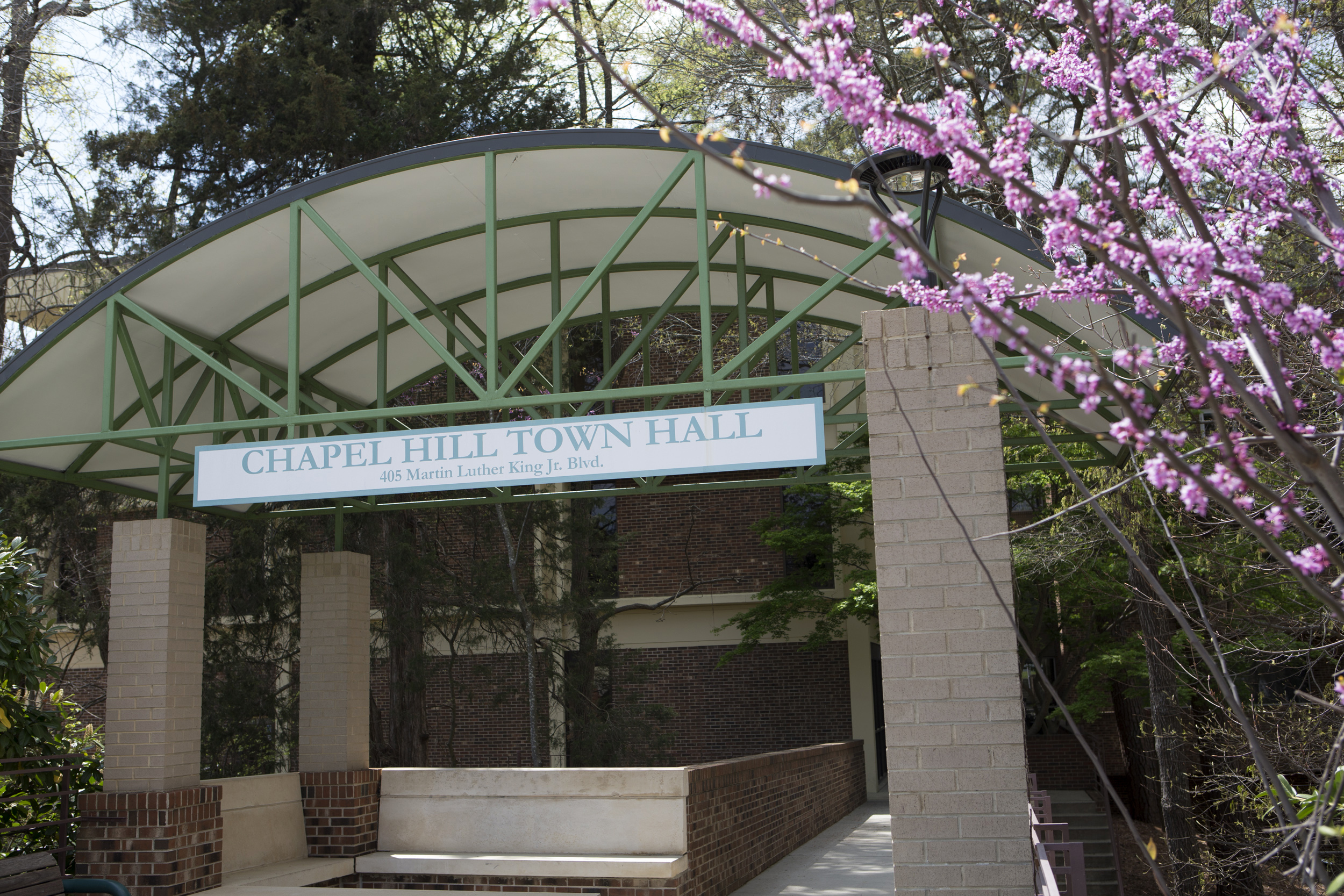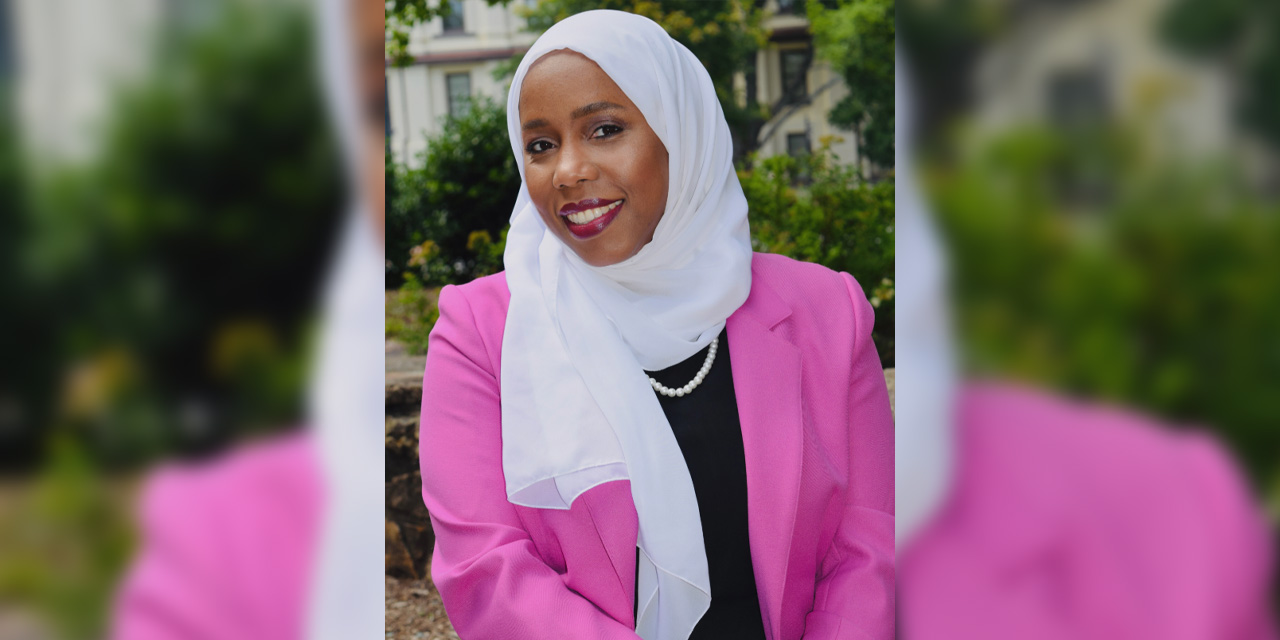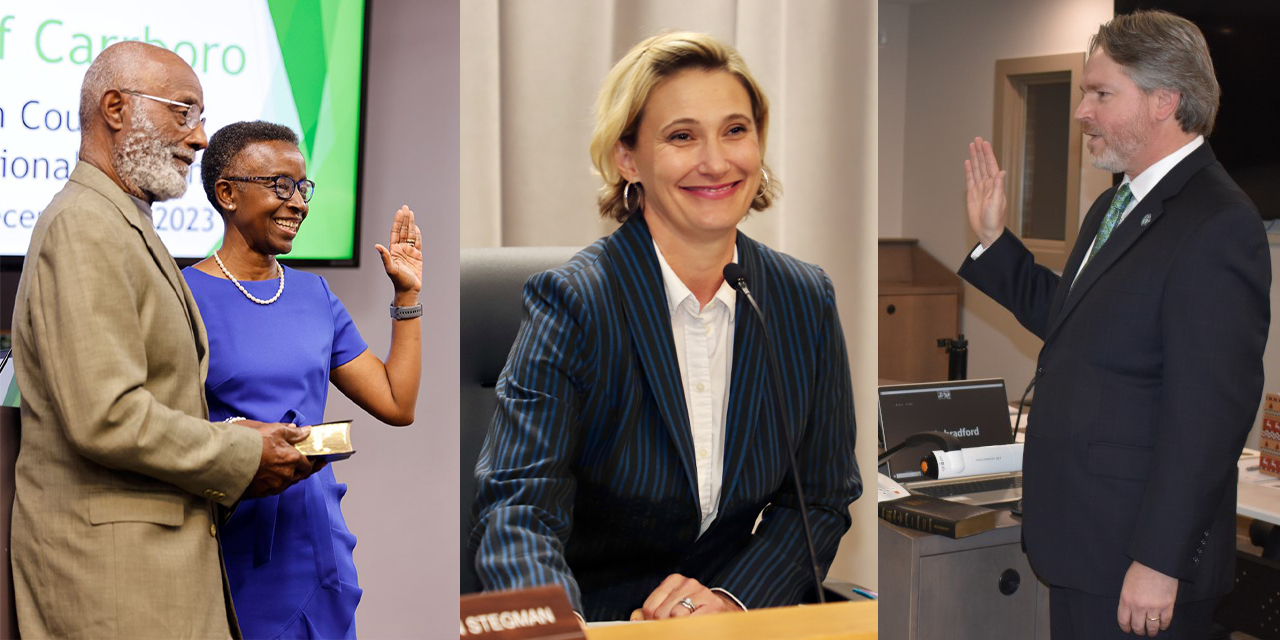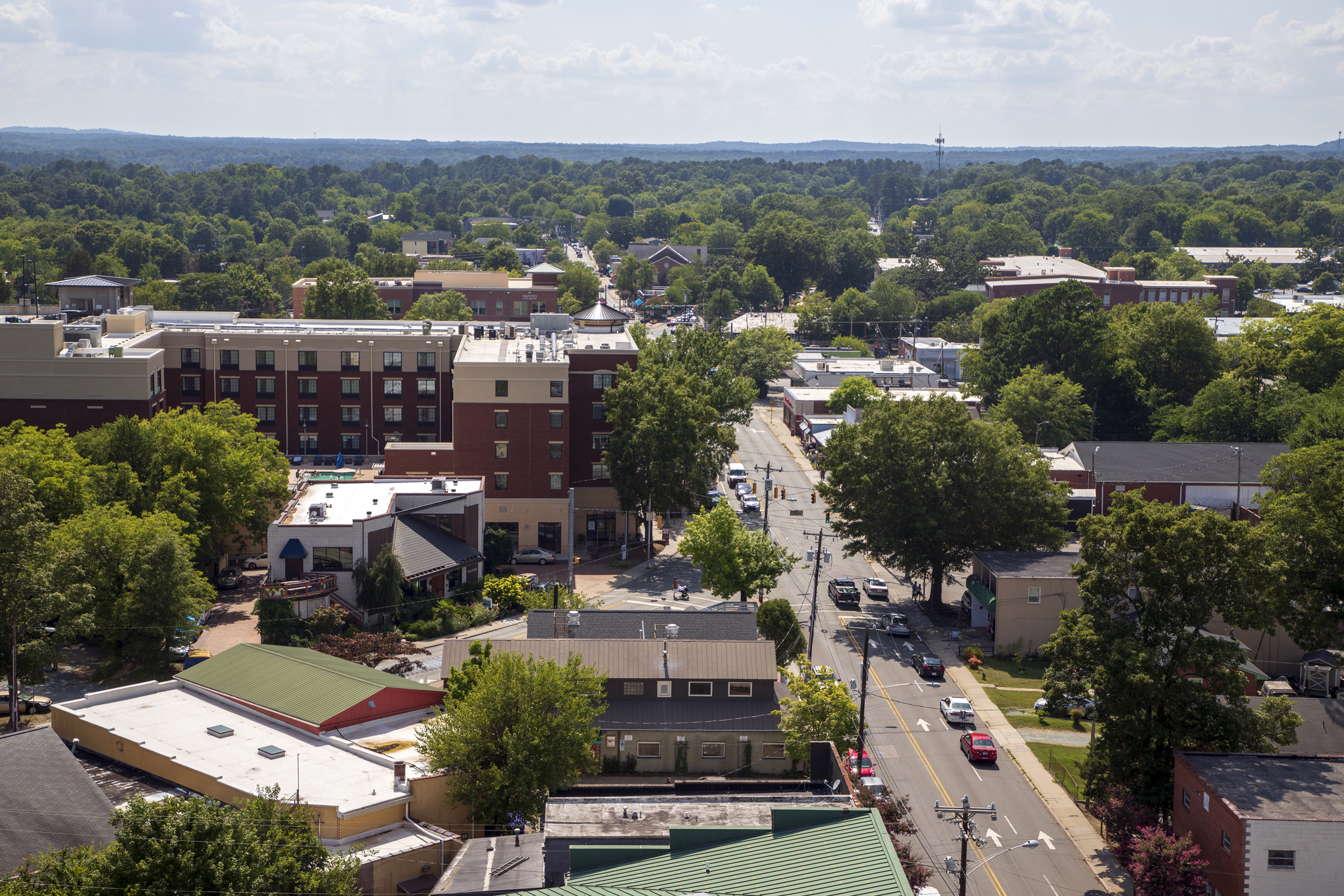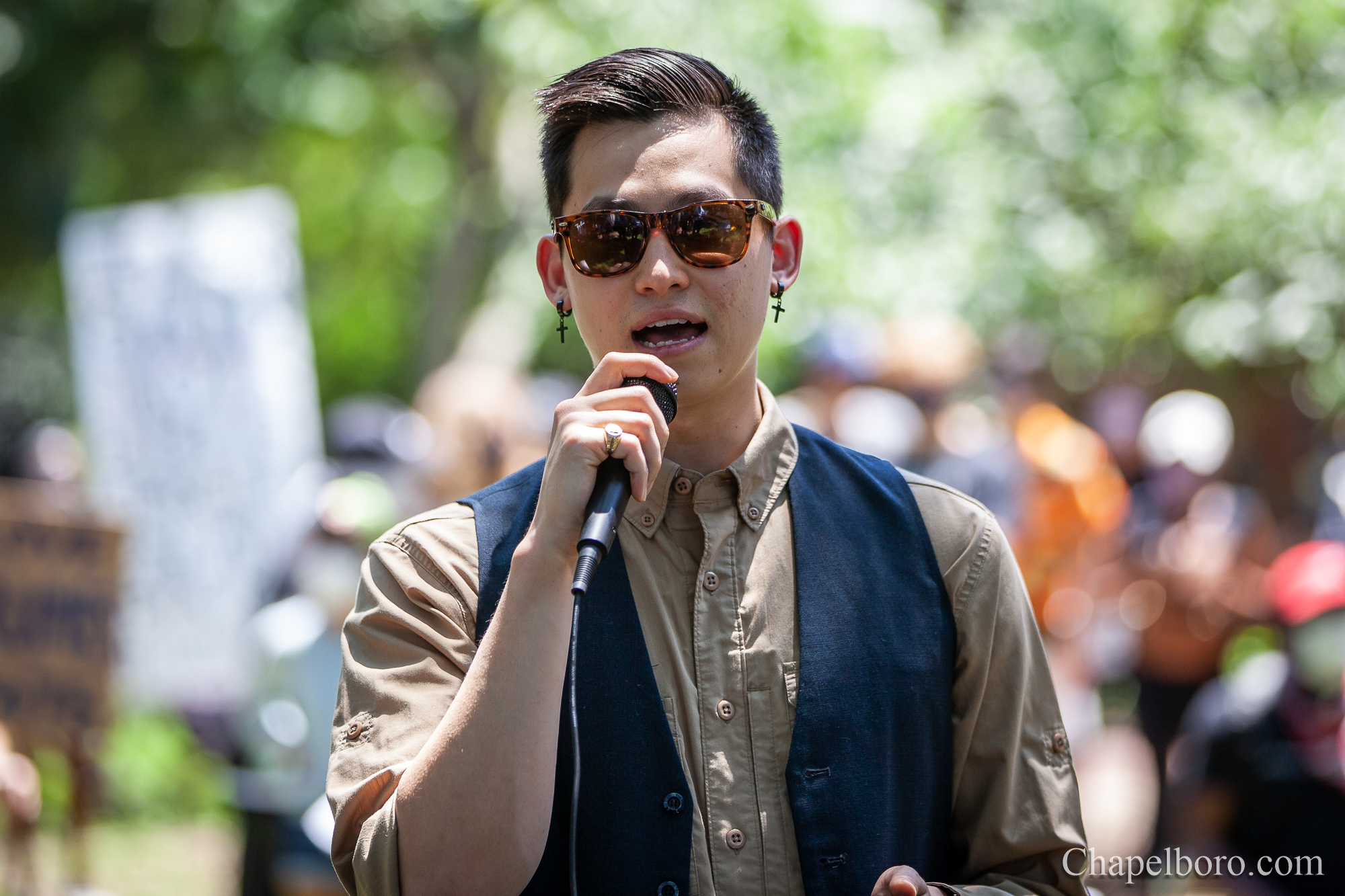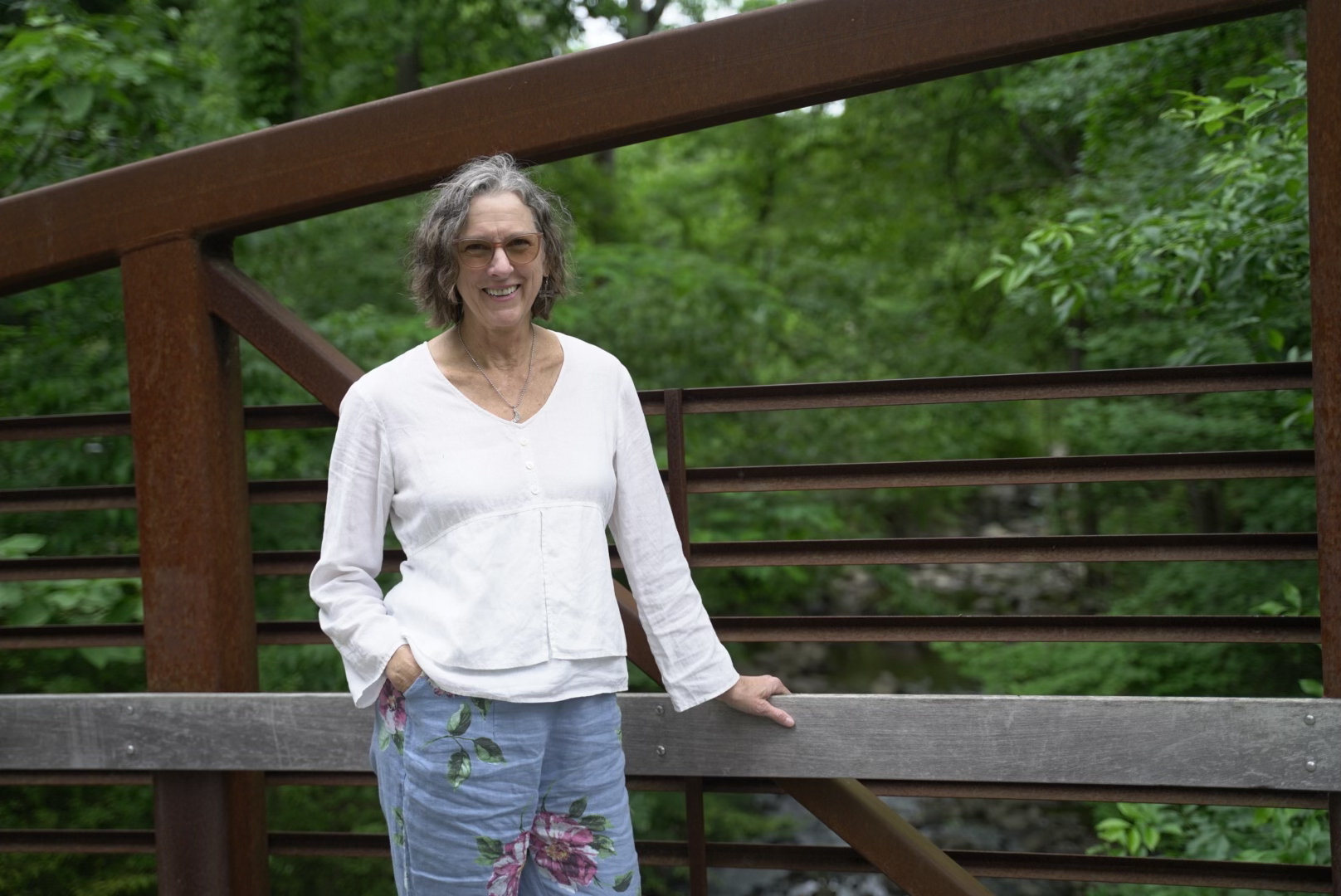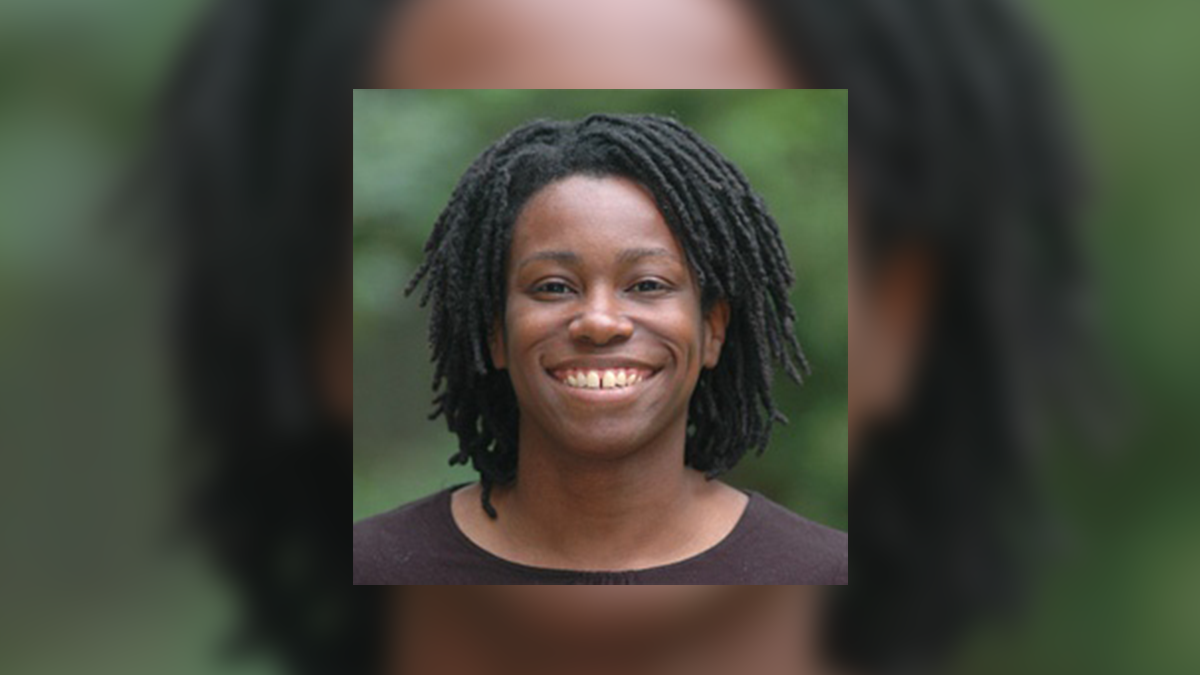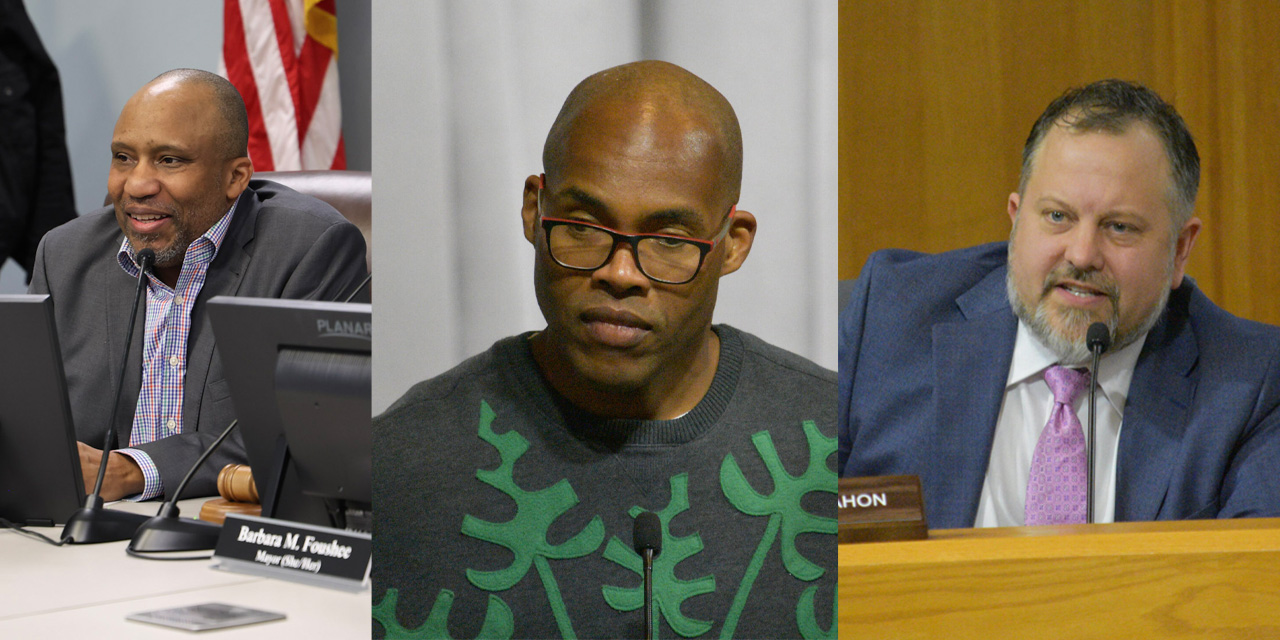In a competitive year with several open seats, three newcomers and one incumbent earned election to the Chapel Hill Town Council on Tuesday night.
Amy Ryan, Melissa McCullough and Theodore Nollert won the most votes in a crowded field of ten candidates. Elizabeth Sharp led for fourth place with all precincts reporting, having 16 more votes than Renuka Soll — but the thin margin means a final count by the Orange County Board of Elections may determine a winner.
McCullough, Ryan, and Nollert jumped out to an early lead in the early vote, with Sharp and Renuka Soll trailing by about 500 votes. In the end, Ryan earned the most votes in the race with 6,467 (13.88 percent). McCullough came second with 27 fewer votes at 13.83 percent and Nollert next with 13.58 percent.
After Sharp and Soll, there was a tie for sixth place. As of Tuesday night, David Adams and Erik Valera each earned 4,435 votes (9.5 percent), with Valera making a push with 260 votes on Election Day. Next came Breckany Eckhardt with 8.7 percent, who was closely followed by Jon Mitchell at 8.5 percent — just 62 votes fewer. Jeffrey Hoagland finished in tenth.
The 2023 race was highlighted by stark division among the candidates in the future of Chapel Hill’s local government. The quartet of Sharp, Soll, Adams and Eckhardt ran as a slate with mayoral candidate Adam Searing, advocating for a different approach to housing needs and growth strategies compared to the current council members. Although there was no formal slate formed by the other candidates, the trio of Ryan, McCullough and Nollert campaigned on continuing — and advancing — those approaches. Searing’s opponent, Jess Anderson, teamed up with her colleague on the council Ryan to launch a web page meant to better inform voters about some of the top issues discussed by candidates in the race and share how the government is addressing those. Anderson ultimately won the Chapel Hill mayoral race on Tuesday with more than 58 percent of the vote.
In an interview with Chapelboro, Ryan said she believes her re-election as the lone incumbent in the race — and based on her platform — is also a representation of how residents want to “address the challenges of the future head-on.” She added that a goal will be continuing communicating with residents about the layered issues town council votes on, similar to the “Know Before You Go” webpage she and Anderson used.
“A lot of times when you knock on someone’s door or you meet somebody at a poll, and they say, ‘I’m really upset about x y and z, I don’t like that you did this…’ When you talk to them and say, ‘Here’s what we’re trying to do, here’s what the constraints on our authority are, here’s why we made the decisions we did, the data we have,’ they say, ‘Oh, I get it now.’
“I think figuring out a way to communicate that really well and really clearly is super important,” Ryan concluded, “so that the community knows why we’re doing what we’re doing, and we hear back from [residents] and what their input is, so we can get to those really good decisions.”
Ryan, who was first elected to the town council in 2019 after serving on Chapel Hill’s planning commission, reaffirmed her support of the council’s framework for planning in her first four years.
“Now, our job is to implement,” she said. “I’m really looking forward to taking all that hard work we did and building it into the way the town does business.”
McCullough and Nollert each thanked their supporters in social media posts on Tuesday and Wednesday. The pair learned of the results at a joint election party they hosted at Linda’s Bar and Grill in downtown Chapel Hill.
McCullough, who is an ecologist that worked for the U.S. Environmental Protection Agency for three decades, told 97.9 The Hill her transition to being a local public figure felt surreal Tuesday night.
“It’s a long, strange trip from being a faceless public servant to looking like I’m going to be an elected official,” she said.
With a campaign largely touting her environmental policy experience, McCullough said one of her biggest takeaways from the campaign trail was how people are interested in Chapel Hill being a leader in reducing climate impact — with many recognizing that housing approaches play a big role in achieving that.
“I learned that there are a lot of people who are very concerned about the sustainability of the community, making our town climate resilient and vibrant,” said McCullough following her victory. “And [there’s] a lot of people who are very worried about having housing that is attainable between the very rich and the subsidized affordable [options]. That really ties together a lot of our winners.”
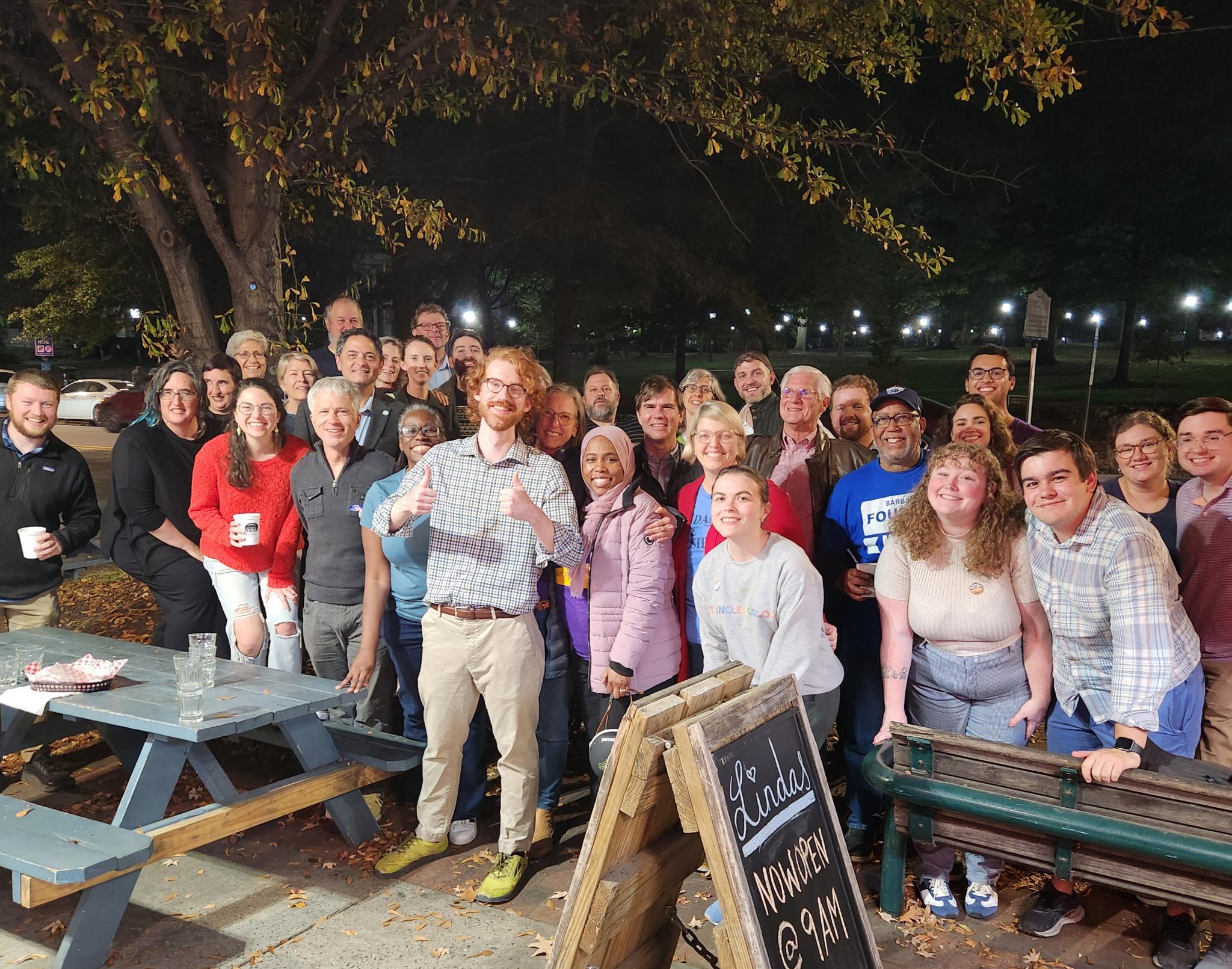
Theodore Nollert (center) and Melissa McCullough (behind Nollert) pose with supporters and elected officials outside of Linda’s Bar and Grill in Chapel Hill on Election Night. (Photo via Theodore Nollert on X.)
Nollert is one of those, as a stalwart of his campaign was being a voice for more housing options for young professionals like himself. A former president of UNC’s graduate student body, he said Tuesday night that he was proud of his team’s effort to knock thousands of residents’ doors and meet community members.
“To me,” he said to Chapelboro, “that was the measure of success: I did everything I possibly could to tell people why I was running, and I did everything I possibly could to listen to people and hear what they are looking for. That’s what I could control, so I feel like I left it all on the field, I feel like I had great conversations and learned from a lot of people.”
Nollert added that he wasn’t stopping to simply enjoy his victory, but already felt motivated to carry the energy in this local election cycle over to the 2024 races in North Carolina.
“I’m delighted with what’s going on in the town right now,” he said, “but we are thinking about what’s happening in the state and Chapel Hill has got to show up again next year. I’m thinking about how we all come together to support good people in this state, who are trying to do the best things for the people who live here.”
On Tuesday, Sharp told 97.9 The Hill she “would be thrilled to serve Chapel Hill” if the current results hold — but that she wants to wait and see the final count. Soll shared on social media that she will wait to address the race until results are certified by the county Board of Elections.
Orange County Elections Director Rachel Raper confirmed to 97.9 The Hill that the board will meet on Thursday, November 16 to count the remaining absentee ballots received before the deadline of November 10 and to deliberate any provisional ballots received during the voting period. Results will be certified the next morning with all other 2023 election results in North Carolina.
This cycle for the Chapel Hill Town Council was set for significant turnover, as three of the four sitting council members announced during the summer they would not be seeking re-election. Anderson shifted her focus to running for the town’s mayoral position instead of seeking another term, while two-term council member Michael Parker and one-term council member Tai Huynh shared they would be stepping away from the local government’s roles.
The organizing meeting where new members will be formally sworn into the Chapel Hill Town Council will be its business meeting on Wednesday, December 18.
Local election results from races in Orange and Chatham County can be found here.
Editor’s Note: This story was initially published the night of November 7 and has been updated with more details on November 8.
Chapelboro.com does not charge subscription fees, and you can directly support our efforts in local journalism here. Want more of what you see on Chapelboro? Let us bring free local news and community information to you by signing up for our biweekly newsletter.

